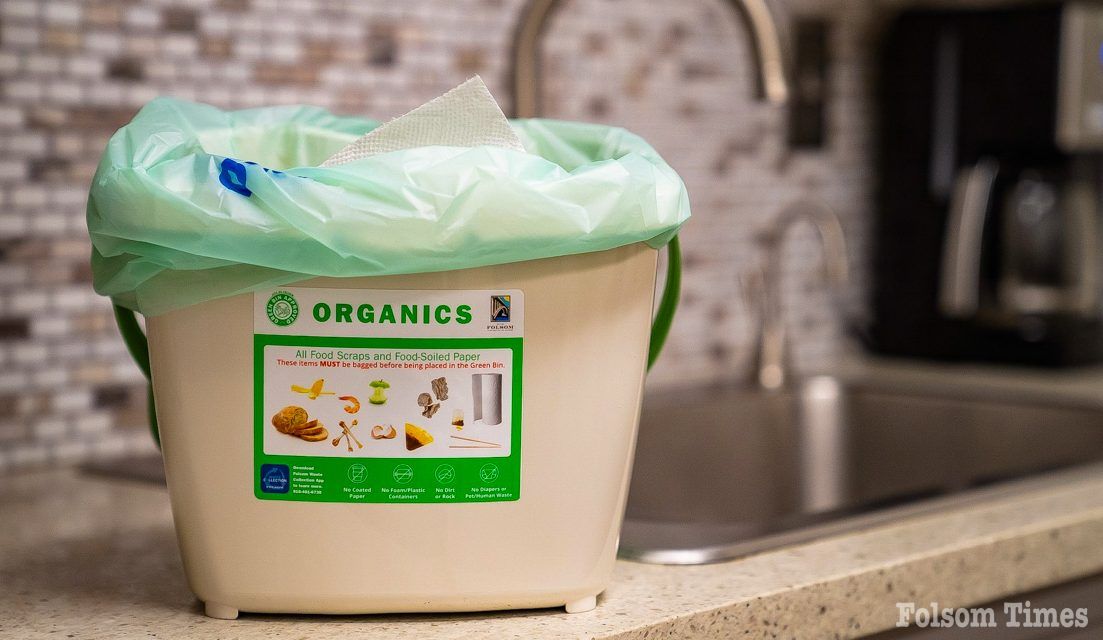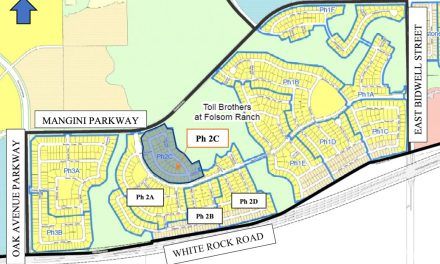FOLSOM — The Folsom City Council has approved a $45 million agreement with California Wood Recycling, Inc. to provide long-term processing of the city’s organic waste, extending its existing partnership with the company for up to 15 years. The contract, approved Tuesday night, fulfills state requirements for organic waste diversion and strengthens Folsom’s participation in a regional program aimed at reducing greenhouse gas emissions through composting.
The agreement authorizes the city manager to execute the contract using funds from Folsom’s Solid Waste Operating Fund. It ensures that residential food scraps, yard trimmings, and other compostable materials will continue to be processed into compost and mulch instead of being sent to landfills. The contract supports compliance with California Senate Bill 1383, which requires cities and counties to reduce methane emissions by diverting organic materials from traditional waste streams.
Marie McKeeth, the city’s General Services Manager, said the contract resulted from a regional procurement process coordinated between Folsom, Sacramento County, and the City of Sacramento. “The agreement is the result of a joint procurement process with the County of Sacramento and the City of Sacramento,” McKeeth told the council. “The reason that we joined forces to do this procurement as a partnership is that by putting all of the tons together for all of the jurisdictions, we were able to offer more for others to propose for.”
McKeeth noted that Agromin, the company’s commercial brand, provides a stable and proven service model. “Agromin creates a very marketable end material,” she said. “Their mulch and compost is certified to be used on organic farms, so they have established markets where they’re easily able to get rid of the material.”
Folsom has contracted with Agromin since 2021 under a short-term agreement for organics processing. The new contract extends that relationship through at least 2040, giving the city long-term price stability and guaranteed processing capacity. McKeeth added that Folsom’s approval is necessary for the regional program to move forward. “Approving the contract with Agromin actually allows all three jurisdictions to move forward because the pricing is based on all three of us participating,” she said.
The city’s Waste and Recycling Division currently provides weekly organic collection for all residents and diverted more than 12,000 tons of organic material from landfills last year. That number is expected to grow to approximately 14,000 tons annually when the new agreement begins in fiscal year 2027–28 and reach 17,000 tons by the end of the contract term.
Public Works Director Rebecca Neves said the new contract ensures both environmental compliance and operational stability. “Continuing our partnership with Agromin allows Folsom to meet state mandates while maintaining reliable, efficient service for residents,” Neves said. “This long-term agreement ensures we have the processing capacity and stability we need as the city continues to grow.”
The first year of the agreement is projected to cost about $1.8 million, with annual costs gradually increasing to roughly $3.3 million by 2038 and up to $4.2 million if the city exercises a five-year extension through 2042. The costs will be covered by residential waste collection rates through the city’s Solid Waste Fund, with annual adjustments tied to the Consumer Price Index and capped at 5 percent per year.
City officials said composting remains one of the most reliable and environmentally beneficial waste reduction methods, producing a valuable end product for agriculture and landscaping while helping to meet statewide climate goals.
The project is exempt from the California Environmental Quality Act, as the approval does not result in a direct environmental impact.
Copyright © 2025, Folsom Times, a digital product of All Town Media LLC. All rights reserved. No portion of this publication may be reproduced, distributed, or transmitted in any form or by any means, without the prior written permission of the publisher.




